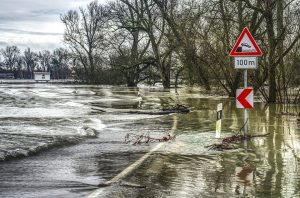 Courtesy of iii.org
Courtesy of iii.org
Every year, millions of Americans safely enjoy outdoor barbecues, but accidents do happen. According to the U.S. Fire Administration, about 5,700 grill fires take place on residential property every year, causing an annual average of $37 million in damage, 100 injuries and 10 deaths. The majority of grill fires are caused by malfunctioning gas grills. In addition, thousands of people visit emergency rooms every year because they have burned themselves while barbecuing.
In the rare instance of a grill fire spreading to your property, your homeowners insurance would provide financial protection as fire is a covered peril. A homeowners policy covers the following:
- Damage to the house itself.
- Damage to personal possessions such as lawn furniture.
- Damage to insured structures on your property, such as a shed or gazebo.
- Injuries to a guest, under the liability portion of the policy.
Keep in mind you’ll have to pay your deductible before your insurance kicks in, so if damage is minimal and your deductible is high, it may not make sense to file an insurance claim.
However, the best way to enjoy a summer of outdoor barbecues is to take steps to prevent accidents, including maintaining your grill and using it safely.
Grill Maintenance and Storage
Gas grills are generally safe if they are properly maintained and checked for leaks. In some instances, grills are unsafe due to faulty design or construction. (You can search the website of the Consumer Product Safety Commission to see if there has been a recall on your grill.) When setting up at the start of each grilling season, the following tips can help ensure everybody’s safety:
- Check grill hoses for cracks, holes and brittleness. Look for blockages as well, especially in the Venturi tube that runs to the burners. Clear blockages—caused by food drippings, spiders or insects—with a wire or pipe cleaner.
- Run a soap solution (one part liquid soap, one part water) along hoses and at connections, then open the valve at your tank and check to make sure that gas isn’t escaping, which will be indicated by bubbles at the leaking points.
- Adjust hoses as needed away from hot areas or where grease might drip on them.
- Store propane tanks outside, away from your house. Always check to make sure valves are firmly turned off.
Safe Barbecuing Practices
When barbecuing, use common sense and follow these guidelines:
- Operate your barbecue on a level surface, away from your house, garage and landscaping. Don’t move the grill once it is lit.
- Keep children and pets away from the grill.
- Protect yourself—or whoever is doing the grilling—with a heavy apron and oven mitts that reach high on the forearm.
- For charcoal grills, use only lighter fluid designed for grilling. Never use gasoline or other flammable liquids, and never add more lighter fluid once the fire has started.
- Never grill indoors or in enclosed areas. Charcoal grills produce carbon monoxide (CO) fumes, which can be fatal in unventilated areas.
- Keep a fire extinguisher nearby.
- When you’re done with your cooking, remember that the grill will remain hot for a while. Don’t cover or store your grill until it has cooled, and soak coals with water before throwing them away.
In Case of an Accident
If a grill accident—or any kind of accident—does occur, injuries should be addressed immediately. Run cool water over minor burns, but do not cover injured areas with bandages, butter or salve. In the case of more serious burns, victims should visit the emergency room or an urgent care facility. If needed or when in doubt, call 911.
Once you have dealt with any injuries, assess your property damage and, if the situation calls for it, contact your insurance professional to discuss filing a claim.



